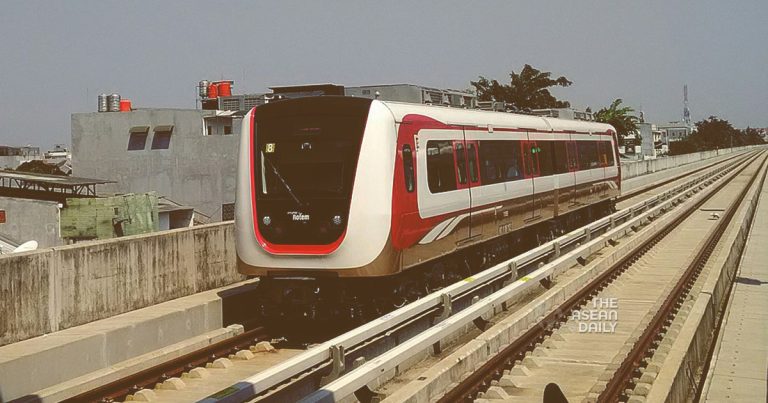28-8-2023 (JAKARTA) Indonesian President Joko Widodo inaugurated the first elevated rail line in Greater Jakarta on Monday, hailing the project as a crucial step towards alleviating the capital’s perennial traffic congestion and escalating air pollution. The ambitious Light Rail Transit (LRT) system, costing approximately US$2.13 billion, spans 41.2km (25.6 miles) and connects central Jakarta with satellite cities in West Java, namely Bekasi and Depok.
The LRT system, operating without drivers, aims to provide a convenient and efficient mode of transportation for residents in Greater Jakarta. The area heavily relies on the 418km (260 mile) Commuter Line, which currently serves around 1.2 million passengers each day. With the introduction of the new LRT system, commuters can expect improved connectivity and reduced travel times across the region.
The launch of the elevated rail line comes as Jakarta grapples with severe air pollution, consistently ranking among the world’s most polluted cities since May. Swiss air quality technology company IQAir recently placed Jakarta at the top of its pollution index. President Joko Widodo attributed the alarming pollution levels to excessive road traffic and industries that heavily rely on coal. He emphasized that nearly 1 million vehicles enter Jakarta daily, exacerbating the city’s congestion and pollution woes.
“Jakarta consistently finds itself among the top 10 cities with the worst traffic congestion,” stated President Widodo. “Traffic jams and pollution are persistent challenges in Jakarta.”
In addition to the newly launched LRT system, Jakarta is already served by an existing 16km underground mass rapid transport (MRT) line that connects the southern areas to the city center. These efforts to enhance public transportation options in Jakarta are part of a comprehensive strategy to address the city’s transportation challenges and improve the quality of life for its more than 10 million residents.
Furthermore, Indonesia has embarked on an ambitious project to build a new capital city on Borneo island, named Nusantara. This initiative aims to replace the congested Jakarta as the administrative hub of Southeast Asia’s largest economy. While there is no specific timeframe for the completion of the project, it is considered a pivotal part of President Widodo’s legacy as he prepares to conclude his term next year. The new capital city is expected to offer better urban planning, enhanced infrastructure, and improved living conditions for its residents.




